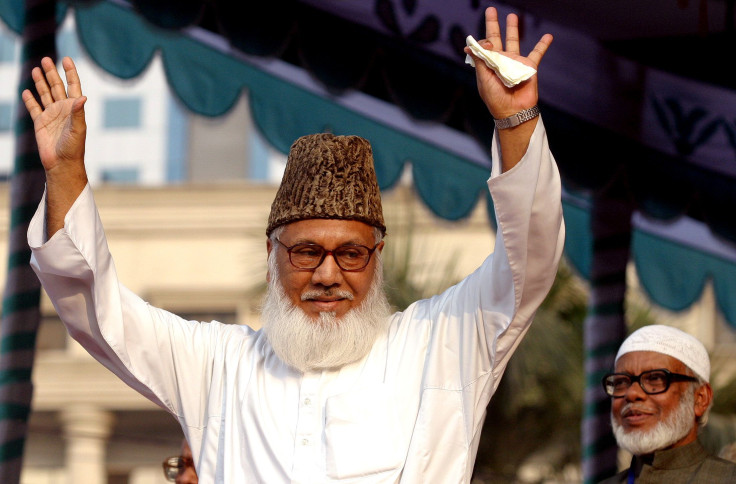Bangladesh Islamist Party Leader Motiur Rahman Nizami Hanged For War Crimes

Motiur Rahman Nizami, the leader of the top Islamist party Jamaat-e-Islami, was hanged in Bangladesh early Wednesday for war crimes committed during the 1971 war of independence to break away from Pakistan. The 73-year-old had been given a death sentence for genocide, rape and torture.
Nizami — the fifth and highest-ranked opposition leader to be executed since December 2013 for war crimes — was executed after the Supreme Court rejected his final plea against the death sentence, which was handed down by the International Crimes Tribunal (ICT) in 2014.
"Nizami has been deprived of justice," Maqbul Ahmad, the acting leader of Bangladesh's largest Islamist party, said, according to the BBC. "He's a victim of political vengeance."
Security was reportedly tightened in capital Dhaka and other major cities as Jamaat-e-Islami called for a nationwide strike Thursday in protest of Nizami's execution.
During the nine-month independence war, about 3 million people were killed, according to government figures, and thousands of women were raped. Some factions, including the Jamaat-e-Islami, had opposed the break from what was then called West Pakistan.
Nizami, who had been in prison since 2010, is the fourth leader of the Jamaat-e-Islami party to have been executed since Prime Minister Sheikh Hasina set up a war crimes tribunal to look into abuses during the independence war. Jamaat-e-Islami party denied that its leaders committed any atrocities.
© Copyright IBTimes 2025. All rights reserved.





















